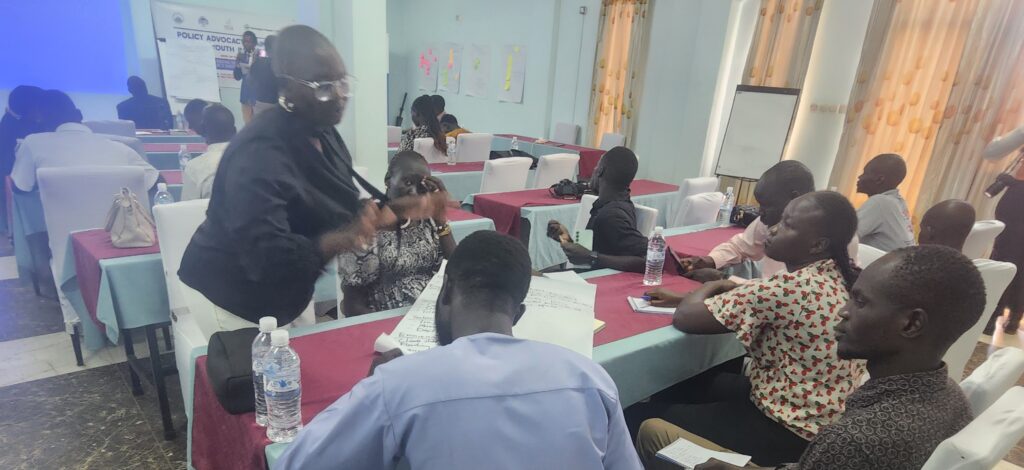A youth advocacy organization on Monday convened a two-day policy advocacy training in Juba aimed at equipping young people with skills to engage in national decision-making and push for long-stalled legislation.
The policy advocacy training is supported by the Norwegian People’s Aid (NPA).
Speaking to Radio Tamazuj, Vicky Ataro, a staff member at Markaz Al Salam, said the training brought together youth from various organisations to strengthen their understanding of policy processes and how to effectively influence them.
“The policy advocacy is all about bringing the youth to speak up, to stand up for their voices to be heard,” she said.
Ataro added that participants are expected to use the skills gained to lobby for key bills yet to be passed into law and to articulate their priorities more confidently.
Boboya James, trainer and policy analyst who also heads the Institute of Social Policy in South Sudan, said more than 40 youth took part in the session, an important milestone in a country where policy advocacy training for young people remains limited.
He said the training was designed to equip participants with key skills in lobbying, negotiations, and issue analysis, particularly as South Sudan recently adopted the Youth Development Policy, which outlines requirements for youth participation in governance.
Boboya added that the youth discussed major national concerns, including access to land, waste management in Juba, the proposed allocation of 10 percent of the national budget to youth, and the need for improved representation of young people in government.
“We have been discussing building youth movements for critical change,” he said, noting that the training also covered how to evaluate and monitor advocacy efforts, build coalitions, and participate in upcoming national processes such as the population census.
One of the trainees, Moro Moses James, the executive director at Youth Action for Community Transformation, described the training as timely and empowering.
“I am happy with this training, which deals with many things in advocacy. It will make everyone more aware of youth rights, and how we are going to engage here in South Sudan,” he said. “After the training, we shall be in a position to empower the youth and even the next generation. It will not only empower me as an individual, but also many youths, especially girls and other young men.”
Markaz Al Salam hopes the initiative will help build a new generation of youth advocates who can meaningfully participate in shaping South Sudan’s policy landscape.




